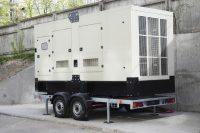Twenty-three states and the District of Columbia have legalized marijuana for medical use. Four of those states and D.C. have also legalized the recreational use of marijuana. A growing number of other states are considering legalization. So, how are pesticides being regulated in marijuana fields, and what are the protections for field workers from pesticides […]
In a brief order, the U.S. Court of Appeals for the D.C. Circuit has allowed the EPA to continue implementing its Mercury and Air Toxics Standards (MATS) for fossil-fuel power plants while the Agency works on finalizing a proposed determination that consideration of cost does not alter EPA’s previous determination that it is appropriate to […]
Twenty-three states and the District of Columbia have legalized marijuana for medical use. Four of those states and D.C. have also legalized the recreational use of marijuana. A growing number of other states are considering legalization. So, how are pesticides being regulated in marijuana fields, and what are the protections for field workers from pesticides […]
When an unforeseeable emergency occurs at your retail motor fueling facility, are your employees adequately trained and prepared to respond to the situation? Retail motor fueling facilities, such as gas stations, have underground storage tanks (USTs) containing regulated substances. Unforeseen situations such as fires, spills, or severe-weather-induced power outages can have serious consequences on a […]
Did you know that the EPA estimates the average cost to clean up a spill or release from an underground storage tank (UST) system is $125,000? These high costs to clean up a spill or a release can cause significant anxiety and stress on any UST owner or operator.
The EPA has released a preproposal for a Federal Implementation Plan (FIP) to carry out its Cross-State Air Pollution Rule (CSAPR) in states that do not have approved state implementation plans (SIP) showing how they will comply with the CSAPR.
Some SPCC-regulated facilities require an additional contingency plan. Federal guidelines have been established for minimum criteria for the development and implementation of state, local, and regional contingency plans. The plans are developed by state and local governments in consultation with private interests in order to ensure timely, efficient, coordinated, and effective action to minimize damage […]
Explaining that owners of regulated stationary emergency generators supplying lifesaving power in emergency situations need more flexibility to bypass emissions controls, the EPA is proposing to allow manufacturers to design the engines in these generators with the means to allow operators to override emissions-control inducements. The Agency is also proposing to redefine remote areas of […]
In its September 18, 2015, announcement that Volkswagen AG had installed illegal emission defeat devices in 500,000 four-cylinder diesel vehicles sold in the U.S. since 2008, the EPA said it would continue testing the company’s vehicles for compliance with the Clean Air Act.
By: Elizabeth Dickinson, JD Are you in compliance when it comes to container management? The most common Resource Conservation and Recovery Act regulatory violations cited by state environmental regulatory agency inspectors are in connection with containers of hazardous waste. So, what are the most common mistakes in managing containers, and how can you avoid them […]










